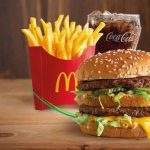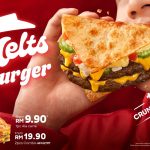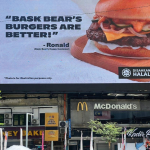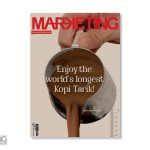
Impossible Foods is no longer trying to win a coveted deal to supply McDonald’s Corp with plant-based burgers, telling Reuters it cannot produce enough of its imitation meat to partner with the world’s No. 1 fast-food chain.
It is the latest twist in the battle of imitation-meat makers hoping to convince more restaurants to offer their patties. But it was unclear how far talks had progressed with McDonald’s, which declined to comment on the discussions.
Shares of Impossible rival Beyond Meat surged on Tuesday, closing 12.5% higher, after Reuters reported that Impossible was no longer in talks with McDonald’s.
The stock had risen earlier in the day on Impossible’s unveiling of its plant-based pork products at the International Consumer Electronics Show in Las Vegas on Monday, spurring further optimism about the sector.
Referring to McDonald’s, Impossible Foods CEO Pat Brown said that “it would be stupid for us to be vying for them right now … Having more big customers right now doesn’t do us any good until we scale up production.”
Impossible Foods and its rivals are duking it out over partnerships with fast-food chains to cash in on the roughly $3,500 per person average that Americans spend each year on food away from home.
The privately held, Silicon Valley-based Impossible Foods teamed up with Burger King last year to launch its soy-based Impossible Whopper in the United States. Impossible Foods is now working to more than double production instead of trying to win a deal the size of McDonald’s, Brown said.
“I wish we had vastly more capacity than we do right now because the demand is high,” he said. Impossible Foods said it had previously met with McDonald’s but declined to disclose details about when it decided it would be unable to support a potential deal.
In late September, McDonald’s launched a 12-week test of a P.L.T. burger in Canada, using patties made by Beyond Meat. But McDonald’s has yet to offer a plant-based burger as a regular feature on its menu at any of its roughly 14,000 U.S. outlets.
“The P.L.T. is a craveable plant-based burger with a patty recipe that is made by McDonald’s, for McDonald’s,” the fast-food chain said in a statement. It declined to provide any specifics on the results of the Canada test.
Beyond Meat told Reuters that talks with McDonald’s are going “very well” and that its new and upcoming facilities around the world are guaranteed to help it keep up with demand – not just in the United States, but globally.
“We would have to work with them (McDonald’s) on timing but, yes, we would be able to meet their demand globally,” Beyond Meat’s chief growth officer, Chuck Muth, said last month in an interview at the Los Angeles-based company’s office.
Capacity issues
Beyond Meat, which is valued at about USD$5 billion after its IPO in May, weathered supply issues in 2017 and 2018, when hamburger chain A&W Canada ran out of Beyond Burgers soon after launching nationwide. But Muth said recently announced facilities in Canada and the Netherlands would prevent future snafus.
Beyond Meat, whose products are made with pea protein, told Reuters in November that it aims to have production up and running in Asia by the end of next year.
“Beyond Meat doesn’t want to drop the ball while there is amazing awareness building in the market, and they need to balance that with not over-committing themselves,” said Dan Altschuler Malek, managing partner at Beyond Meat investor Unovis Partners. “The industry will continue to talk about pressure on supply for years – not because output hasn’t increased but because consumer demand continues to exceed expectations.”
McDonald’s typically works with multiple suppliers to provide components for major menu items like burgers and French fries. Other fast-food companies – including Yum! Brands’ KFC and Dunkin Brands – have tested and rolled out plant-based versions of items on their menus, made by dominant suppliers Beyond Meat or Impossible Foods.
Impossible Foods declined to comment on when it believes it might have enough supply or manufacturing capacity to partner with McDonald’s.
“When we are ready to do it, we would certainly like them to be a customer,” Impossible’s CEO, Brown, said. “Right now, if McDonald’s said they wanted us to be in all the restaurants, we’d have to say ‘Sorry, we can’t do it.’”
Impossible Foods has had capacity issues that have hurt customers in the past. In June, hamburger chain White Castle suffered a month-long shortage of Impossible Slider patties, for instance.
source: https://www.theedgemarkets.com/
MARKETING Magazine is not responsible for the content of external sites.
An afternoon of conversations we never had, with leaders most of you never met.
Discover what’s possible from those who made it possible. Plus a preview of The HAM Agency Rankings REPORT 2024.
Limited seats: [email protected]
BOOK SEATS NOW









